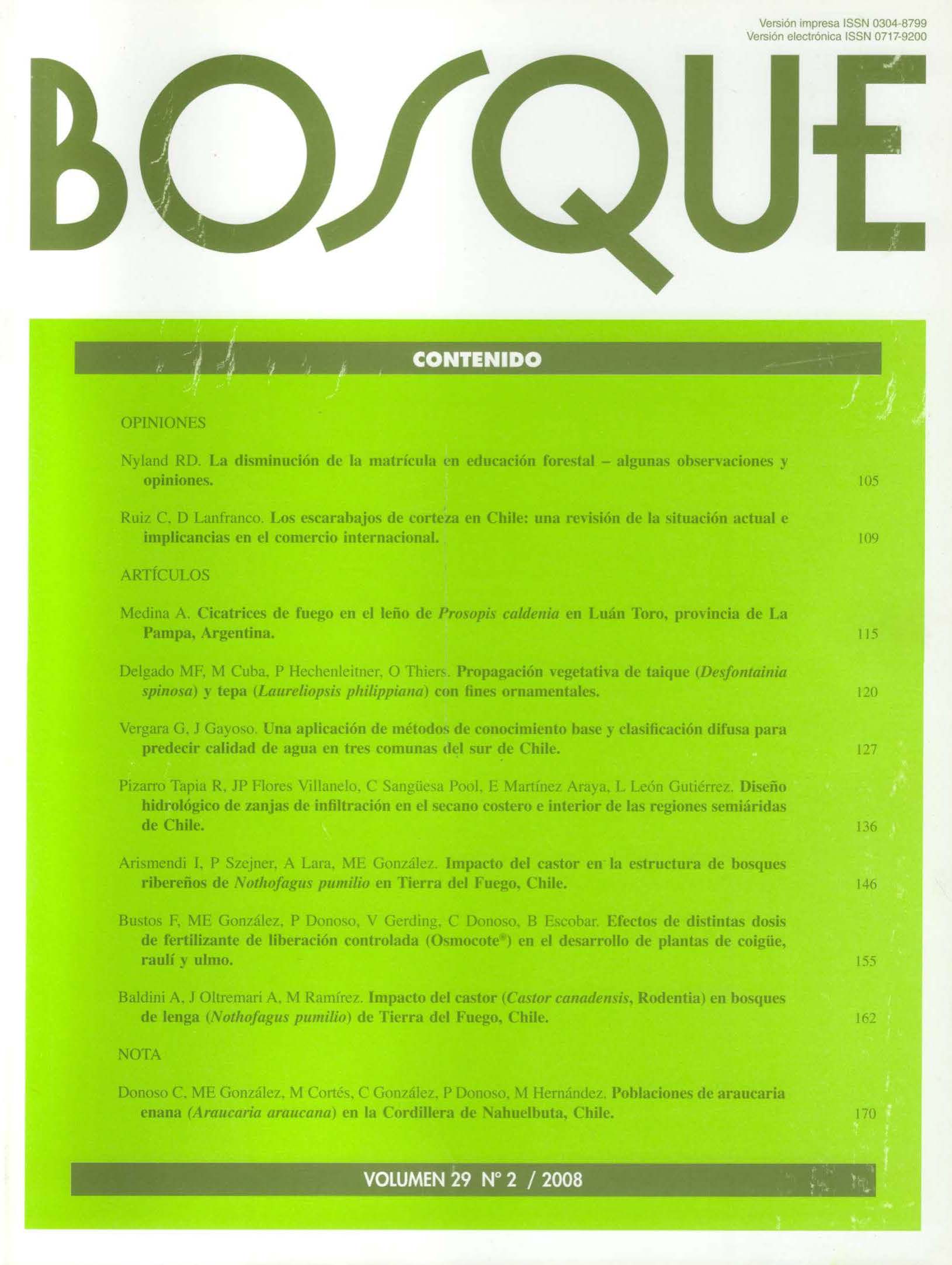Impact of american beaver (Castor canadensis, Rodentia) in lenga (Nothofagus pumilio) forests of Tierra del Fuego, Chile
Main Article Content
Abstract
Castor canadensis is a North American rodent introduced in the Argentinean part of Tierra del Fuego in 1946, invading Chilean territories located in the same area. In this zone, not only do beavers build dikes, but they also feed on arboreal material, mainly from Nothofagus pumilio. This study tried to prove that damage on both biomass and volume in the N. pumilio forest is caused by beavers. The objectives of the study were: to identify the type of damage and to quantify the loss of wood biomass and gross volume of the most abundant forest species. Results indicated that more than half of measured trees presented some damage; the highest damage being presented by N. pumilio. Loss in biomass reaches almost 15 t ha–1; amount superior to results found in studies made on the endemic environment of beavers. In relation to wood volume, over half of the stocks of N. pumilio forests associated to water resources have been lost in Tierra del Fuego due to the effect of beaver. The most important volume loss of this species derives from the death of individuals in flooded zones as a result of dike construction.

